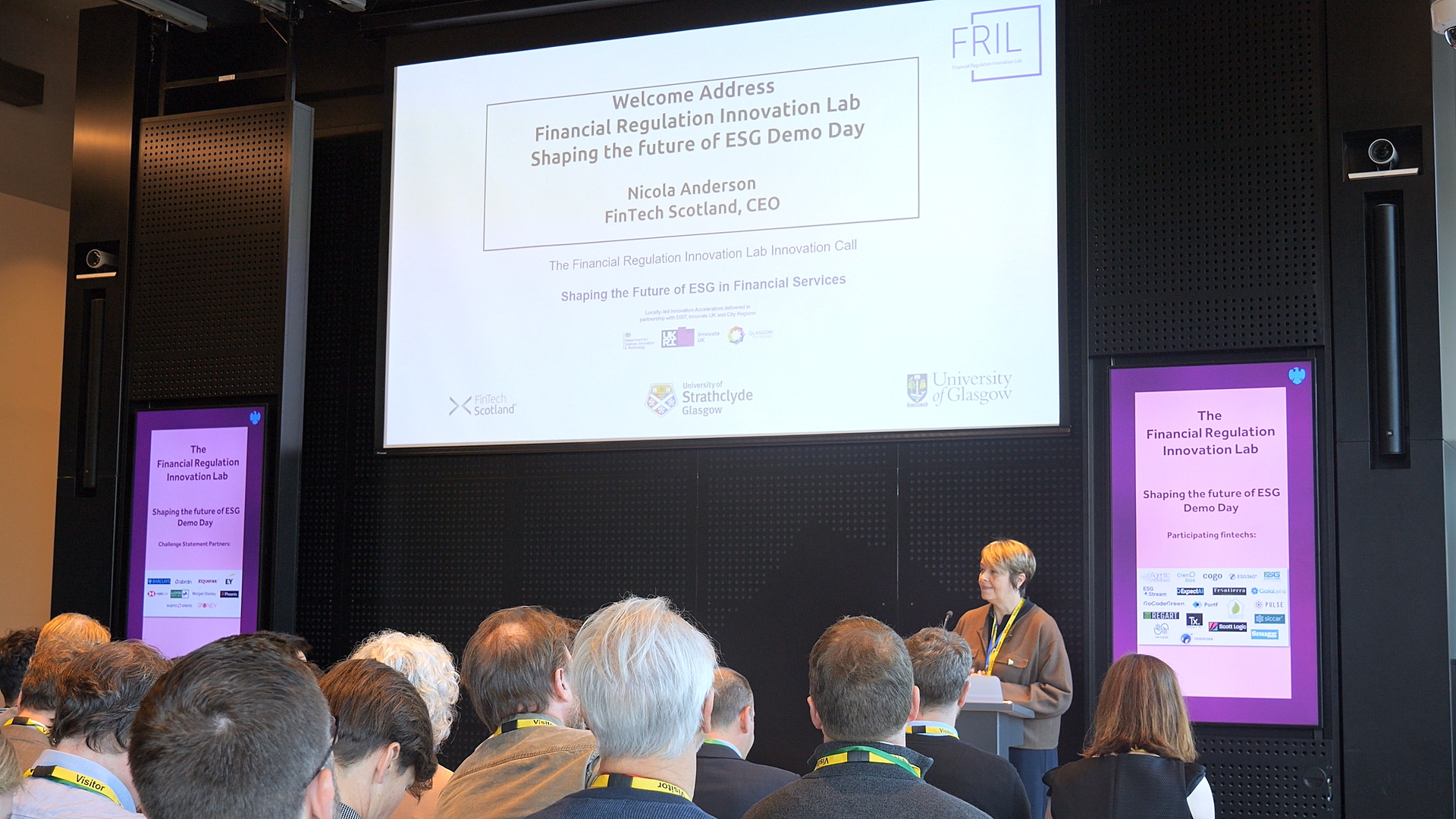Financial Regulation Innovation Lab – Exploring the intersection of quantum computing and the finance sector

As part of the 4th FRIL theme focusing on innovation to address financial crime, the FRIL team along with Alliance for Research Challenge in Quantum Technologies (Quantum ARC) and Technology Scotland hosted a roundtable to explore and catalyse the opportunities present now and in the near-future between quantum computing and the finance sector.
The discussion spanned a broad range of topics at the intersection of quantum and finance, with various opportunities and risks highlighted. Within these opportunities and risks, the discussion emphasised the critical need in thinking in relation to economic crime and fraud, which we look forward to progressing through the 4th FRIL programme currently live focusing on ‘innovation to address financial crime’.
What is Quantum Technology and the risks it presents?
McKinsey states quantum technology could create value worth trillions of dollars within the next decade with the finance sector identified as a sector that could see the earliest impact, however the concept remains relatively unknown to most. The term quantum technology broadly relates to science that applies quantum mechanics to a given field of technology, and refers to a subset of fields such as quantum computing, quantum sensing, quantum imaging, or quantum communications.
For the purposes of this blog, we will be focusing on quantum computing, which utilises qubits, concisely summarised by the World Economic Forum as –
Quibits are the equivalent of a classical bit, and the most fundamental unit for encoding information. Where a bit can be in a state of either on or off (0 or 1), a qubit can be in either 0 or 1 – or a combination of both. This is because of a superposition effect in quantum theory, which means that particles can exist simultaneously in multiple states.
In practice, this means not only can quantum computing provide a significant performance boost in processing, but it also has the potential to solve complex problems much faster than even the most powerful supercomputers today.
Whilst this kind of revolutionary power could deliver numerous opportunities for the finance sector, the risk rapidly materialises when considering public-key cryptography (PKC), which the security of nearly all Internet communications today is based on. The underpinning security of PKC relies on the difficulty of the mathematical problems and the challenge in which classical computers have in solving them. However, solving these mathematical problems with a general purpose quantum computer is considered easy, with Shor’s algorithm demonstrating this capability back in 1994, the challenge being that the power capabilities of a quantum computer to run the algorithm do not yet exist.
As highlighted by the NCSC, although advances in quantum computing technology continue to be made, quantum computers today are still limited, and suffer from relatively high error rates in each operation they perform. For organisations, however, this risk remains a priority for the thinking of today as bad actors are adopting a ‘harvest now, decrypt later’ approach to collect valuable, sensitive data in anticipation of power capabilities being on the horizon.
What is the current regulatory landscape at the intersection of quantum computing and the finance sector?
Regulatory agencies worldwide are battling with the balance between technology readiness levels and appropriate regulation or standard setting in relation to developments.
In October 2024, the UK Govt agreed with recommendations made by the Regulatory Horizons Committee (RHC – commissioned by DSIT to review the future needs of quantum technologies regulation to support innovation and growth) ‘that it is too early to establish regulatory requirements and legislation for quantum technologies at this stage given the nascency of the sector, but sustained action is required now to increase regulatory capability and enable a sector- and application-specific approach to regulating quantum technologies in the future’. When considering the finance sector specifically, the UK’s Financial Conduct Authority has demonstrated its position as a leading voice in the quantum security domain through collaborative initiatives with the World Economic Forum, where research was published offering guidance for businesses and regulators to ensure a collaborative and globally harmonised approach to quantum security.
Looking further afield at the international landscape, momentum continues to evolve at pace, and earlier this year we also saw the US agency National Institute of Standards & Technology (NIST) finalised several post quantum encryption standards. With these standards, NIST encouraged large organisations, including those across the finance sector, to begin transitioning to the new standards as soon as possible. Regulatory authorities in Singapore have also recently launched a ‘Quantum Track’ within their Financial Sector Technology & Innovation Scheme (FSTI 3.0), with an additional S$100 million earmarked to support innovation in quantum and AI.
Despite this progress, participants in the discussion broadly agreed there is still a long way to go when assessing the regulatory and standard setting landscape of quantum.
How can we collectively progress successful collaboration around the exploration of quantum technologies?
The consensus of the discussion emphasised that the fundamental principles for continued collaboration span across the triple helix of engagement from industry, academia and regulatory colleagues, mirroring the principles that underpin the Financial Regulation Innovation Lab. Here at FRIL we will continue to actively convene stakeholders across these groups on topics that present both opportunities and risks in financial regulation, exploring how innovative propositions and ways of working can be progressed across the ecosystem.
Across the FinTech Scotland cluster there are various collaborative projects exploring the beneficial and responsible exploration of quantum technologies. One of which, highlighted by roundtable attendees, is the BT Quantum Key Distribution project. The NCSC outlines that Quantum Key Distribution (QKD) mitigates the quantum threat to key agreement using properties of quantum mechanics, rather than hard mathematical problems, to provide security. We look forward to continuing to engage with our partners in the BT team on their learnings throughout this programme and sharing insights across the cluster.
Challenges were highlighted around accessing and sharing data, which continues to be a barrier for innovators and researchers in this area. Discussion touched on the potential of synthetic data in aiding progress for development activities, and reference to the success of regulatory initiatives such as the FCA Digital Sandbox in already going some of the way to knock down these barriers. Risks were also highlighted around the danger that advancements in quantum could be dominated by existing major players in the market, further emphasising the importance of initiatives that support democratising the playing field for innovators in this space to enable competition and avoid monopolisation.
What’s next in the intersection of quantum and finance?
Reflections were made on the rapid evolution of AI, and the opportunities to respond differently as we look forward to the evolving risks and opportunities that quantum presents. These lessons range from the debate around explainability, and the potential opportunities quantum presents in this field, through to the pace at which regulation and standard setting is struggling to keep up with the technology.
There was a broad agreement across attendees that priority use cases for the finance sector in regards to quantum computing need refinement, with possibilities spanning from the use of quantum technologies by bad actors through to organisational adoption of quantum technologies. Attendees also highlighted the opportunities that can be explored with quantum technology as we look to areas such as open finance and the value that can be derived from this data to create beneficial and responsible innovation.
The FRIL Innovation to Address Financial Crime programme lays the foundations to begin testing some of this thinking, as evidenced through the roundtable and also the broader innovation call series, and we will continue to engage with experts across the ecosystem in the long term roadmap of FRIL focus areas. We are looking forward to engaging with innovators across the industry led use cases in this programme, exploring where potential quantum computing advancements may provide opportunities to more effectively tackle financial crime risks.
Interested in exploring more? The key contacts across the Financial Regulation Innovation Lab on this topic are:
- Lauren Cassells, Research and Innovation Programme Manager (lauren.cassells@fintechscotland.com)
- Gemma Milne, Research Associate, University of Glasgow (gemma.milne@glasgow.ac.uk)



